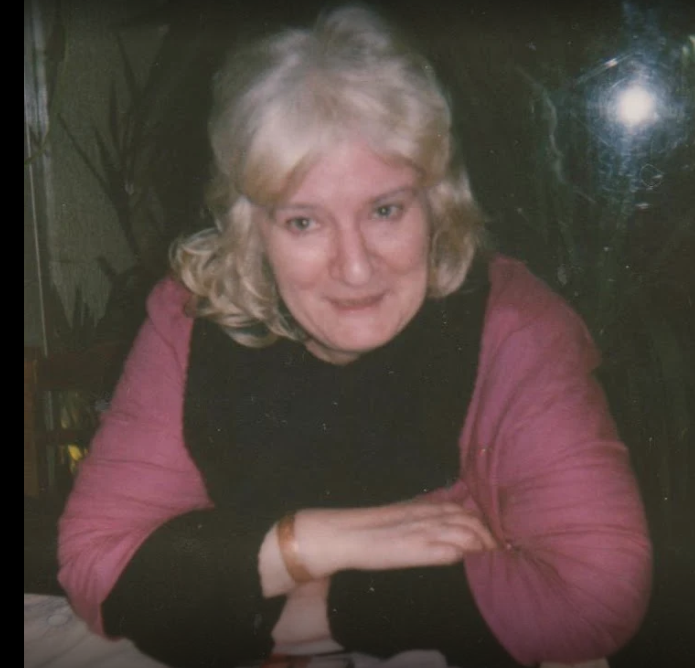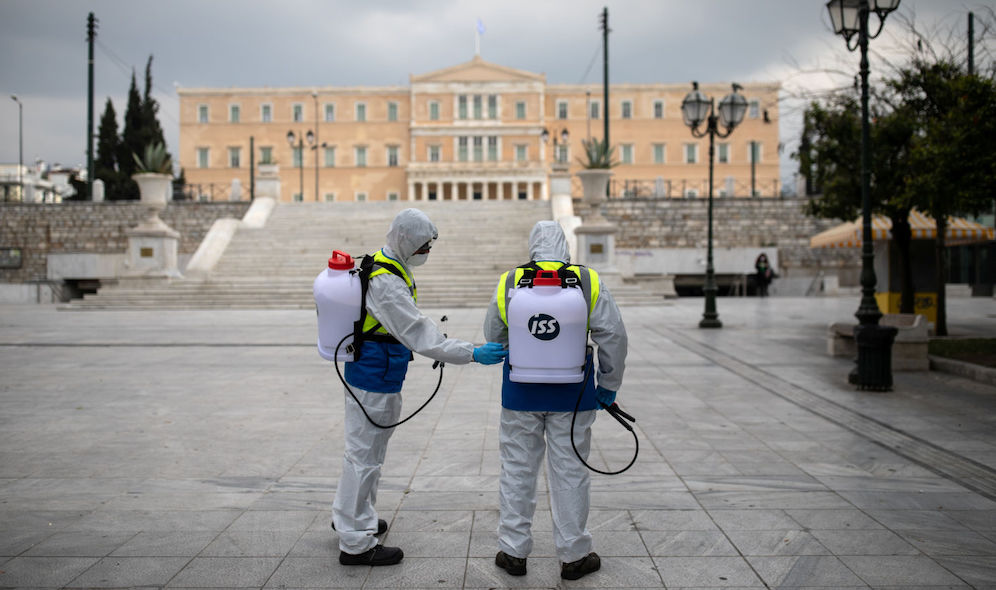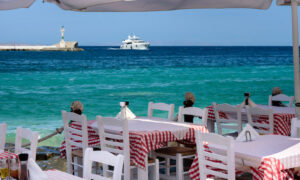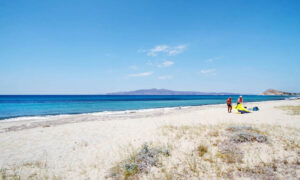You might think that Greeks would not respond well to staying at home under virtual lockdown. However, they are showing remarkable restraint. That being said, there’s nowhere to go during the COVID-19 pandemic.
If tavernas open for business, they risk a fine and being closed by the police. Several owners of establishments in Athens were taken to court last week for defying the new restrictions. Ten days ago, the government told Greeks not to visit the Athenian Riviera. The weather is warm enough for the beach here. However, Athenians obeyed, but instead headed for the hills, and Mt. Ymettus was full of people.
They followed the directive, but there was no logical extension of
thought. It was rather like their interpretation of carrying helmets on motorbikes. Instead of actually wearing them, some Greeks actually carry them on their wrists. Theoretically they are not breaking the law. (Happily, this is changing.)
Ghost town
Athens is a ghost town and even the usually busy tourist area of Plaka, with its tavernas and souvenir shops, is eerily quiet. All the museums and archaeological sites are closed for the duration. The message is clear – TOURISTS, STAY AWAY – there’s nothing to see, or do, here.
The weekend of 21 March began passenger restrictions on ferries. Only island residents are allowed to travel between the mainland and the islands.
Greece as a whole is more or less in lockdown. People are allowed out to go shopping for food and medicines or go to a bank or visit a doctor. They can also go to work. But to go out Greeks must have completed a form which details their name and address, their work address and hours of work.
Police can stop and check that people have a completed form and if they don’t, there’s a 150 euro fine. If a person can’t get an online form, then it’s acceptable to write a note stating their purpose for being on the road. This can be written on ordinary paper.
New rules under COVID-19
The Greek government is taking the health threat posed by COVID-19 very seriously. Hotels across Greece are to close until 30 April at least, and no more than 10 people are allowed to gather in public. In supermarkets, people must have 15 metres of personal space, extended from 10 which was required when the measures were first introduced. Supermarkets opened yesterday on 22 March and could continue to open on Sundays until the end of April.
Greeks are very sociable as I have observed in tavernas. The place might be empty, but as soon as you sit at a table Greeks tend to occupy the surrounding tables. They don’t understand the concept of personal space. I can’t imagine this will be any different in a supermarket. They’ll all congregate in the same aisle.
My local street market was not in operation last weekend. It should have been open on Saturday, 21 March, but because of the crowds it attracts, it was closed. People buy fresh produce every week at such markets, as well as fish and seafood. There’s meat too, but it’s a common consensus that it’s better to buy from a local fishmonger or butcher. However, if these markets remain closed, the elderly and other cash-strapped individuals will be less well off.
Also, of course, people can’t socialise so much. Many people do a large weekly shop in street markets and grab the opportunity to catch up with local gossip.
Greece likely to close borders
On 23 March it was reported that 110 Greeks have been repatriated to the port city of Patras from neighbouring Italy. When all Greeks who wish to return have been repatriated, Greece is very likely to suspend all passenger flights to and from the United Kingdom and elsewhere.
Greek Easter is coming up on 19 April, and no one knows what arrangements might be made for that. It is the most important religious holiday in the Greek Orthodox calendar. The expats who live here are not really making any plans to leave Greece, which is just as well, really as we’re more or less unable to, although, who knows what might be allowed in an emergency. Unfortunately though, we won’t be able to see our friends and relatives over Easter, even though they have booked flights and so on.
They will not be able to share the Pascha lamb or crack red eggs with us. Never mind, there’s always next year, hopefully.
Isolation has many drawbacks, not least of which is the imact on peoples’ mental health. So for many reasons, we hope everything can return to at least a semblance of normalcy very soon.
(Editor’s note: You can see more details here about what Greece and other countries are doing to combat coronavirus.)

About the author:
Lynne Evans is originally from Wales but is an inveterate traveller. She is passionate about writing and feels compelled to write something every day. Lynne has visited many countries in Europe and South Asia. Working as a freelance writer gives her opportunities to travel.
She’s currently living in her favourite country, Greece, in Athens. In the past, she was always leaving Greece and then returning. This time she wants to stay.
Here are all of Lynne’s posts about her adventures in Greece.














